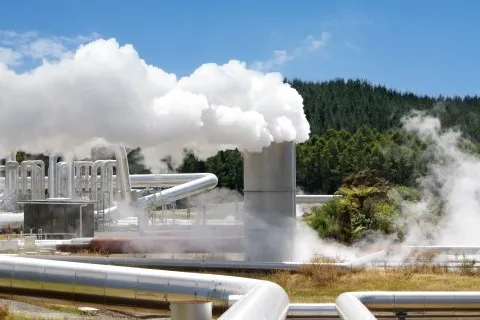
Indian thermal utilities can't seal long-term power purchase agreements
Tie-up woes will continue until 2019.
India Ratings anticipates favourable environment for wind and solar energy sectors as bids are being driven by central government agencies and power purchase agreements (PPAs) are becoming favourable to developers in terms of addressing grid curtailment and termination issues.
Development of guarantee funds by states/bidders, incentives to local solar panels manufacturers and exploring of wind-solar hybrid projects and offshore wind projects indicate a sustaining growth momentum in renewable power.
Few hurdles such as uncertainties in solar panel costs, unpredictable behaviour of distribution companies (discoms) and operational troubles from wind turbine manufacturers need to be addressed by renewable developers. Ind-Ra believes avoidance of downtime of solar and wind plants are critical in ensuring the predicted internal rate of returns.
Here's more from India Ratings:
The agency has maintained a negative outlook on the thermal power sector for FY19, due to lack of visibility for tying up long-term PPAs. Existing excess power tie-up of discoms and PPAs already signed with central and state sector generating companies for buying power from 40GW under construction thermal plants, preclude the need for purchasing power from private thermal plants under long-term PPAs. Excess power tie-up, ahead of requirement, increases the power purchase costs for discoms. Also, thermal plants remain vulnerable to coal and water availability; thus certainty in these two linkages is hard to come by.
There is a possibility of discoms resisting new renewable PPAs because of existing excess power tie-ups and PPA tie-ups with upcoming thermal plants.
Uncertainties in plant load factor is significantly high in wind projects than solar projects owing to estimation errors during initial wind resource assessment, high dependence on single turbine supplier for operations and maintenance, and high susceptibility to grid curtailment.
Ind-Ra has maintained a stable outlook on transmission projects owing to high project availability and stable receivable period of interstate transmission assets. Credit profile of intrastate projects remains constrained due to single counterparty risk. Introduction of general network access (a change in methodology of awarding and managing open access to interstate transmission network) would not affect payments to interstate transmission projects, as revenue collection by pooling mechanism is slated to continue under general network access.
Bond market is favouring renewable and transmission companies. Developers are looking for various avenues to raise funds for growth. Timeline between project commissioning and refinancing bank loans with bonds is decreasing as investors are getting tuned to the risks in the projects and developers are looking to generate cash for growth. Ind-Ra foresees adequate liquidity back-ups and counterparty risks as the most critical factors for renewable projects.








![Cross Domain [Manu + SBR + ABF + ABR + FMCG + HBR + ]](https://cmg-qa.s3.ap-southeast-1.amazonaws.com/s3fs-public/styles/exclusive_featured_article/public/2025-01/earth-3537401_1920_4.jpg.webp?itok=WaRpTJwE)
![Cross Domain [SBR + ABR]](https://cmg-qa.s3.ap-southeast-1.amazonaws.com/s3fs-public/styles/exclusive_featured_article/public/2025-01/pexels-jahoo-867092-2_1.jpg.webp?itok=o7MUL1oO)









 Advertise
Advertise


